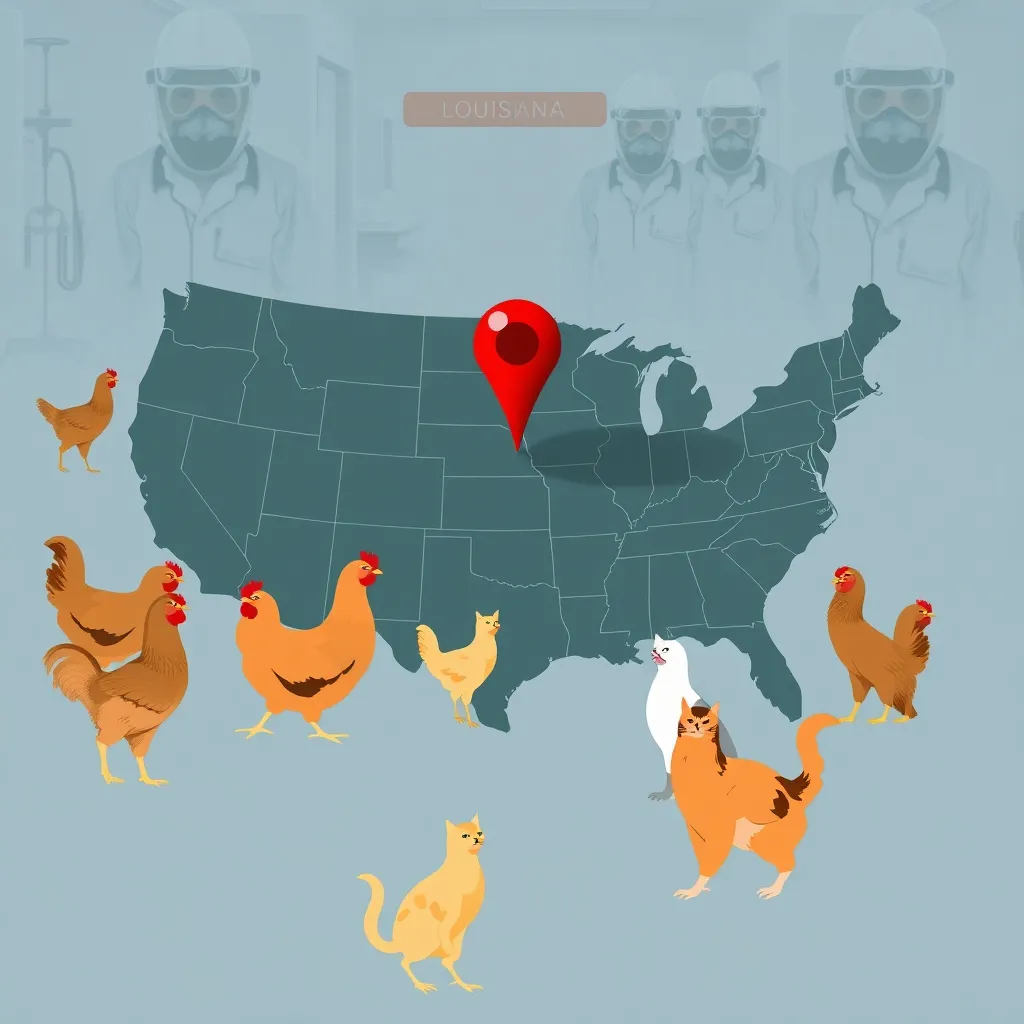
A recent announcement from the Louisiana Department of Health (LDH) has confirmed the first fatal case of H5N1 avian flu infection in a human in the United States. The patient, who was previously hospitalized with severe symptoms, has succumbed to the illness.
This development comes as the country is experiencing a surge in avian flu outbreaks among poultry and other animals. The H5N1 virus has been detected in multiple states, leading to concerns about the potential for further transmission to humans.
Avian flu, also known as bird flu, is a highly contagious and deadly disease that affects birds, including poultry and wild waterfowl. While the risk of transmission to humans is generally low, it can occur through close contact with infected birds or contaminated surfaces.
The LDH has not released further details about the patient, including their age, location, or any underlying health conditions that may have contributed to the severity of their illness. However, the department has emphasized the importance of taking precautions to prevent the spread of the virus, particularly among individuals who work with poultry or other animals that may be infected.
In addition to the human case, there have been reports of avian flu outbreaks among cats in the US. While the virus is not typically associated with felines, it can be transmitted to them through contact with infected birds or contaminated food and water.
The US Centers for Disease Control and Prevention (CDC) and the US Department of Agriculture (USDA) are working closely with state and local authorities to monitor the situation and implement measures to control the spread of the virus.
The public is advised to take precautions to prevent the spread of avian flu, including:
- Avoiding close contact with poultry or other animals that may be infected
- Washing hands thoroughly with soap and water after handling birds or contaminated surfaces
- Avoiding touching eyes, nose, and mouth
- Covering mouth and nose with a tissue when coughing or sneezing
- Staying home from work or school if experiencing symptoms of illness
The CDC and USDA will continue to provide updates on the situation and offer guidance on how to prevent the spread of avian flu. In the meantime, the public is urged to remain vigilant and take necessary precautions to protect themselves and their animals.





